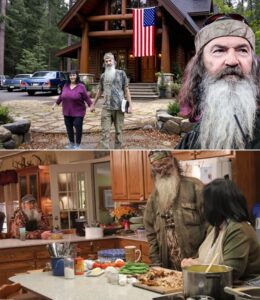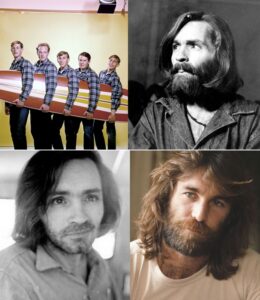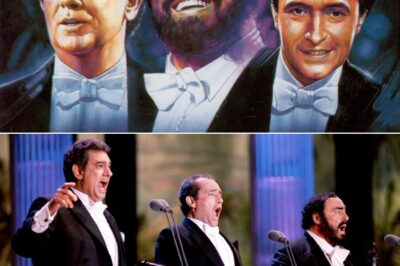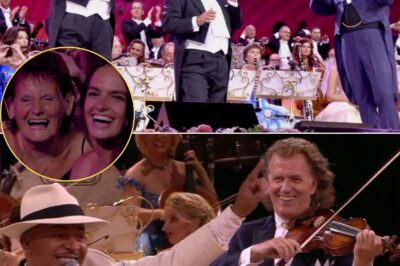Charles Manson and The Beach Boys’ Dennis Wilson Had a Brief and Bizarre Friendship
The Beach Boy and cult leader spent the summer of 1968 living together and dreaming about the musical possibilities that lay ahead.
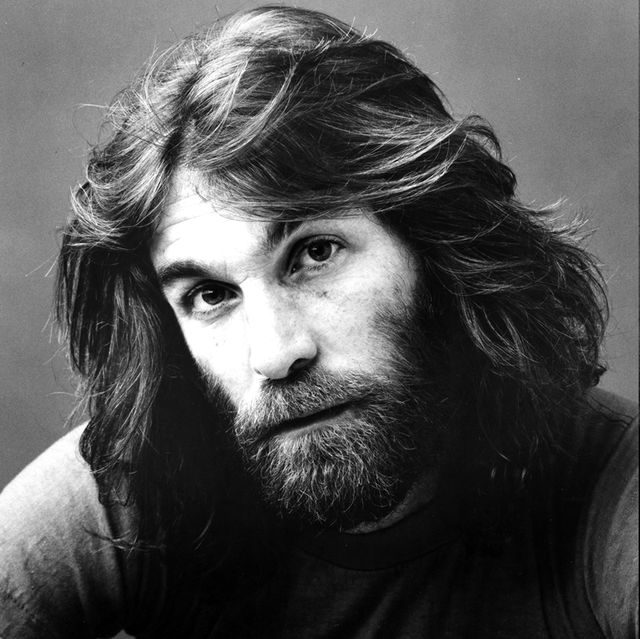
We may earn commission from links on this page, but we only recommend products we back.
By 1968, Beach Boy Dennis Wilson was divorced from his first wife, Carol Freedman, and living the high life in a large house on Sunset Boulevard outside Los Angeles.
That spring, he stopped to pick up two female hitchhikers on the Sunset Strip and invited them home for milk and cookies. After eating, he got to talking about his experiences with the Maharishi, founder of Transcendental Meditation. The women said that they, too, had a spiritual guru, named Charlie.
Not long afterward, Wilson returned home at night to find the lights on and a school bus parked outside. He eyed the small man walking toward him and asked if the intruder intended to hurt him.
“Do I look like I’m going to?” responded Charles Manson, before dropping to his knees to kiss Wilson’s feet.
Thus began the unusual friendship between a rock ’n’ roll icon and one of history’s most sadistic cult leaders.
Wilson Welcomes Manson In
Although Wilson didn’t yet realize it, he opened his home to Manson and his 20 or so female companions for an indeterminate length of time. At first, he didn’t mind: The free-spirited drummer was used to picking up hitchhikers and partying with all sorts of eclectic people at his home.
Still, Wilson believed in Manson’s musical talent and set up a recording session through the Beach Boys’ label, Brother Records. However, this ended on bad terms when Manson pulled out a knife to express his irritation with the studio engineer.
Their Friendship Cooled after Manson Moved Out
By the end of the summer, after blowing through an estimated $100,000 to pay for the family’s food, medical bills, and damages to his property, Wilson decided he’d had enough of the Wizard and his entourage.
Avoiding confrontation, he moved out of his rented home with the lease set to expire, leaving his landlord to formally evict the Manson family. Wilson also got back at Manson by taking one of his songs, “Cease to Exist,” and recrafting it as “Never Learn Not to Love,” later claiming sole credit for the track.
The friendship between the two men was mostly over by this point, though they still occasionally saw one another. In November, Wilson informed Manson that one of his songs would appear on the upcoming Beach Boys album, 20/20. Manson learned the full truth after “Never Learn Not to Love” was released as the B-side to their cover of “Bluebirds Over the Mountain” in December 1968.
After initially containing his fury, Manson showed Wilson a bullet and suggested it was important to keep his children safe, which, by at least one account, prompted the enraged drummer to beat him up. According to Love, Wilson also confessed that he had seen Manson shoot someone and stuff him down a well.
Wilson Regretted His Association with Manson
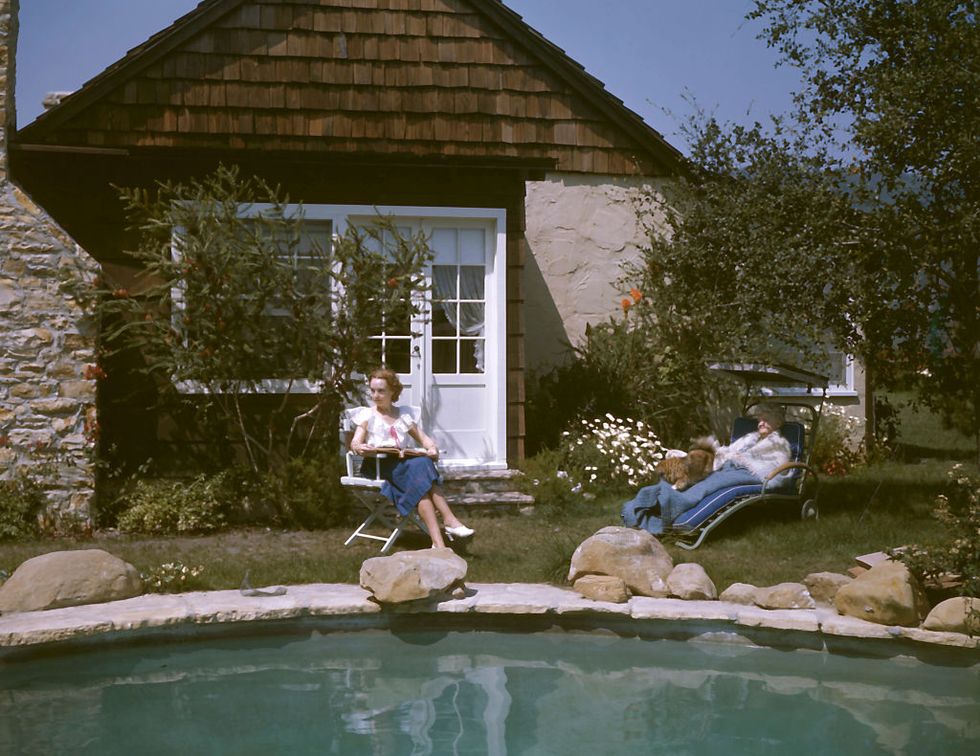
Getty Images
A 1946 photo of 10050 Cielo Drive, which would become a gruesome crime scene two decades later
By the summer of 1969, after his long-awaited audition for Melcher had failed to produce the record deal he was expecting, Manson decided that it was time to ignite Helter Skelter, the race wars he warned would wipe out civilization.
On August 8, Manson ordered his followers to kill everyone at 10050 Cielo Drive. Melcher had moved out months earlier, leaving its new resident, Sharon Tate, wife of director Roman Polanski, and a few friends as the unfortunate victims. The following day, the Manson family struck again with the murders of Leno and Rosemary LaBianca in Los Feliz.
A few months later, Wilson learned along with the rest of the world that his former friend was behind the horrendous killings that had terrified the Hollywood community. Although he refused to publicly talk about it, Love and others have noted that Wilson carried the guilt of his association to Manson for the rest of his life, possibly even fueling the self-destructive behavior that led to his drowning at age 39.
News
When José Carreras stepped onto the stage to perform Torna a Surriento in honor of Mario Lanza, no one expected what would unfold next—his voice didn’t just fill the room; it seemed to reach back through time, echoing with the passion and brilliance of a forgotten era. The atmosphere shifted, the audience fell silent, and some even questioned if they were witnessing more than just a performance. Was this truly Carreras, or had the very soul of Neapolitan music been awakened through him? What mysterious force stirred that night? Why did this single performance leave even seasoned opera lovers speechless? One thing was certain: something unforgettable happened—and it may never happen again.
When José Carreras performed Torna a Surriento in his tribute to Mario Lanza, it was as if the spirit of…
“There’s a Musical Performance Everyone Keeps Talking About, and It’s Not What You Expect—André Rieu’s Rendition of ‘Ballade Pour Adeline’ Has Left Millions Puzzled, Captivated, and Compelled to Rewatch Without Understanding Why—Some Call It a Perfect Mystery in Sound, Others Say It’s Just a Simple Tune, Yet It Continues to Spread Globally with Unexplainable Force—What Is It About This Instrumental That Pulls People In So Deeply? Why Are Listeners Around the World Experiencing Something They Can’t Explain Whenever This Version Plays? One Thing Is Certain: Whether You’ve Heard It Before or Not, There’s Something Hidden in This Performance That Might Change How You Experience Music Forever.
“There’s a Musical Performance Everyone Keeps Talking About, and It’s Not What You Expect—André Rieu’s Rendition of ‘Ballade Pour Adeline’…
You’ve Heard the Voice… But Do You Know the Man Behind It? From Frozen Beginnings in Siberia to Standing Ovations Across the Globe, Dmitri Hvorostovsky Uncovers the Untold Chapters of His Rise to Fame—A Journey Marked by Unimaginable Highs, Quiet Struggles, and Personal Discoveries Never Shared Until Now in This Rare and Candid Sit-Down with Bing & Dennis That Will Leave You Reexamining Everything You Thought You Knew About the World’s Most Captivating Baritone
You’ve Heard the Voice… But Do You Know the Man Behind It? From Frozen Beginnings in Siberia to Standing Ovations…
The moment classical music hijacked a disco legend—watch as Rieu’s strings unleash a tidal wave of joy, turning solemn concert halls into dancing riots. This isn’t just crossover; it’s a revolution where bow meets bassline, and the audience loses all restraint. Proof that even the grandest stages can’t contain the explosive power of a timeless anthem reborn.
The moment classical music hijacked a disco legend—watch as Rieu’s strings unleash a tidal wave of joy, turning solemn concert…
The Note That Shattered Eternity: Pavarotti’s Forbidden Rise from Obscurity to Opera’s Unrivaled Throne—A Documentary That Uncovers the Raw Truth Behind the Legend. How One Man’s Voice Defied Gravity, Broke Every Rule, and Rewrote Music History. Secrets, Scandals, and the Untold Sacrifices That Built an Icon. This Isn’t Just a Film—It’s a Revelation That Will Leave You Breathless. Witness the Explosive Journey of the Century, Where Talent Collided with Destiny, and the World Still Hasn’t Recovered. For Fans Who Think They Know Everything and Newcomers Who Dare to Discover: Prepare for the Unthinkable.
The Note That Shattered Eternity: Pavarotti’s Forbidden Rise from Obscurity to Opera’s Unrivaled Throne—A Documentary That Uncovers the Raw Truth…
Andrea Bocelli and Veronica Berti’s Breathtaking Duet: A Romantic Symphony of Love, Dance, and Passion That Captivated the World – Their Eyes Locked, Voices Merged, and Hearts Spoke in a Moment So Pure, It Felt Like Time Stood Still. Witness the Magic of Their Unbreakable Bond, the Grace of Their Waltz, and the Fire of Their Final Kiss That Left Millions Spellbound. This Isn’t Just a Performance—It’s a Love Letter Set to Music, a Testament to Devotion That Redefines Fairytale Romance. Every Glance, Every Note, Every Step Tells a Story of Two Souls Perfectly in Sync. Prepare to Be Moved Beyond Words!
Andrea Bocelli and Veronica Berti’s Breathtaking Duet: A Romantic Symphony of Love, Dance, and Passion That Captivated the World –…
End of content
No more pages to load



